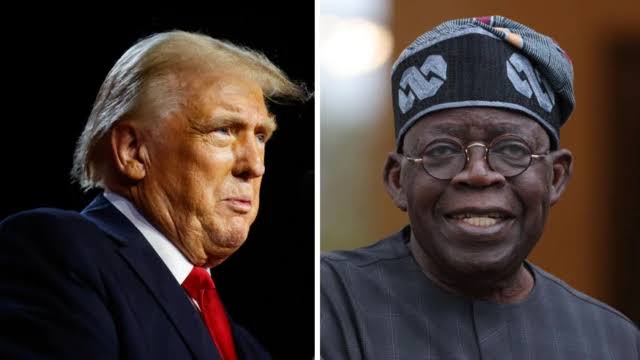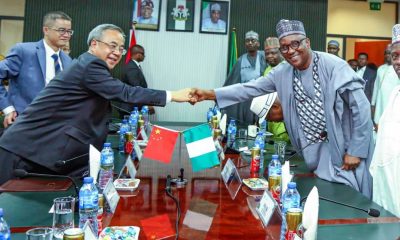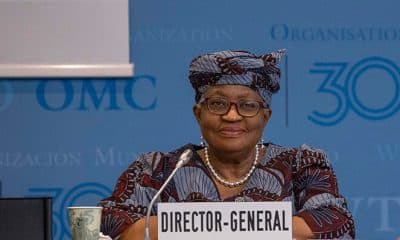Nigeria News
Tinubu Government Considers Budget Review Amid Trump’s Tariff Sanction On Nigeria

The Bola Tinubu-led government is considering a major reset of its economic strategy in response to a 14% tariff imposed on Nigerian exports by the United States.
Naija News reports that the tariff, which comes as part of a broader trade dispute between the two nations, threatens to affect Nigeria’s $6 billion annual exports to the U.S., exacerbating existing economic challenges such as inflation and a weakened naira.
Nigeria’s Minister of Finance and Coordinating Minister of the Economy, Wale Edun, acknowledged the economic implications of the new U.S. tariff and expressed concerns about its potential effects on the country.
Speaking at the inaugural Corporate Governance Forum in Abuja, Edun revealed that Nigeria’s economic management team, comprising stakeholders from both the public and private sectors, will closely monitor the evolving situation and recommend strategies to mitigate the risks posed by the tariff.
Edun stated, “It is our responsibility to look at the various scenarios and options and advise the government accordingly.”
He added that the government would likely reassess critical assumptions underlying the 2025 budget, including oil price benchmarks and projected revenues, to adapt to the new global trade dynamics.
The U.S. tariff, imposed by President Donald Trump, is a retaliatory measure for Nigeria’s 27% tariff on American goods.
However, oil and mineral-related exports from Nigeria have been exempted from the new tariff policy. Despite the tariff, Nigeria has maintained a trade surplus with the U.S. over the past three years, with oil and mineral exports accounting for the majority of Nigeria’s total exports.
“Although the tariff will impact exports, if Nigeria maintains its oil and mineral export volumes, the effect will remain minimal,” Edun noted.
However, he pointed out that the real challenge lies in the volatility of oil prices, which could further strain the economy. The Nigerian government is already intensifying efforts to increase crude oil production and boost non-oil revenue through the Federal Inland Revenue Service (FIRS) and the Nigeria Customs Service.
In light of the ongoing trade war, Edun hinted at a strategic overhaul of Nigeria’s economy, including a potential budget realignment.
The government is particularly focused on improving State-Owned Enterprises (SOEs), which play a significant role in key sectors such as energy, telecommunications, infrastructure, and financial services. However, inefficiencies and poor governance have hindered the potential of these enterprises to drive economic growth and job creation.
The Ministry of Finance Incorporated (MOFI) has launched a corporate governance scorecard to improve transparency, accountability, and efficiency in the management of SOEs.
“The absence of corporate governance best practices has historically led to fiscal leakages, diminished public trust, and an erosion of investor confidence. “We are embarking on reforms to reposition SOEs for value creation,” Edun said
Edun praised MOFI’s efforts to introduce reforms and called for further strategic interventions to institutionalize the Corporate Governance Scorecard, enhance fiscal oversight, and promote public-private partnerships (PPPs). He also highlighted the need to reform legal and regulatory frameworks to support the country’s economic growth.
“State-owned enterprises must adopt robust corporate governance frameworks to achieve operational excellence and financial sustainability,” Edun concluded, emphasizing the importance of strengthening Nigeria’s economic institutions in response to the evolving global trade landscape.












